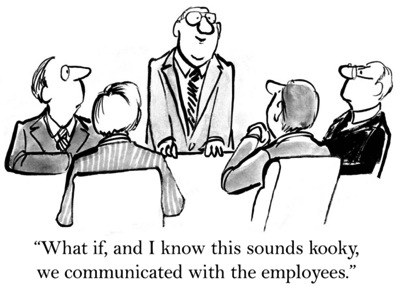Election Day Strategy
 I’ve come up with a new election day strategy that I’ll be using on Tuesday.
I’ve come up with a new election day strategy that I’ll be using on Tuesday.
It’s an elegant strategy that only has you ask yourself one question before you pull the lever for or put a pencil mark next to a candidate’s name.
I came up with this strategy while watching TV ads featuring the candidates or seeing them in a debate. The best news about this strategy is that you really don’t need to know their party affiliation or position on any topic to make your choice.
If you vote a straight ticket, this strategy won’t appeal to you because you’ll be too lazy to employ it.
I know there’s a bumper sticker strategy out there already that says, “Vote the Candidate.” That may get you to vote for a person you like or vote for them because they’ve adopted a position you agree with, but that’s not a guarantee they’ll perform well when in office.
My strategy doesn’t guarantee their performance either, but I’m certain the odds are better for them doing so if you use this strategy.
So what’s the one question you’ll want to ask about a candidate before you vote for them? It’s simple. Just ask yourself, “Would I follow them up a hill?”
If the answer is “yes,” vote for them. If the answer is “no,” don’t. If you wouldn’t follow either of the candidates up a hill, don’t vote for either one.
An unquestionable experience I own in life is this: The people who will disappoint you the most are the people who don’t follow through.
Based on that philosophy, Would I follow them up a hill? will get you more leaders who will follow up when they get to Capitol Hill.
All the best,
John
Be Sociable, Share!

 Seems to me that the biggest mistake we all make is not knowing we’re making a mistake.
Seems to me that the biggest mistake we all make is not knowing we’re making a mistake. If you’ve read anything that I’ve written over the years, you know I think that positive thinking is positively putrid as a strategy. It just doesn’t work that well.
If you’ve read anything that I’ve written over the years, you know I think that positive thinking is positively putrid as a strategy. It just doesn’t work that well. It’s amazing to me the number of things that pop in when your mind gets quiet or is otherwise occupied. That’s when the creative part of us I refer to as The Grasshopper goes to work.
It’s amazing to me the number of things that pop in when your mind gets quiet or is otherwise occupied. That’s when the creative part of us I refer to as The Grasshopper goes to work. I plead guilty to the following charge: Finding something you don’t own.
I plead guilty to the following charge: Finding something you don’t own. The Grasshopper showed up at the gym yesterday wearing his “Pepsi Generation” headband and had this to say: “Logic won’t get you through an emotional jam.”
The Grasshopper showed up at the gym yesterday wearing his “Pepsi Generation” headband and had this to say: “Logic won’t get you through an emotional jam.” I was talking to my sister on the phone over the weekend when The Grasshopper unexpectedly popped into the conversation and said, “You don’t know how out of shape you are until you attempt to get back in shape.” I think it’s more than a physical reference.
I was talking to my sister on the phone over the weekend when The Grasshopper unexpectedly popped into the conversation and said, “You don’t know how out of shape you are until you attempt to get back in shape.” I think it’s more than a physical reference. How much attention do you give to what’s not happening? If you’re anything like me, too much.
How much attention do you give to what’s not happening? If you’re anything like me, too much. I am truly stunned when I contemplate the things I believe without evidence. What is equally stunning is the penchant to argue for those beliefs. It can lead to a lifetime of arguments that never get resolved.
I am truly stunned when I contemplate the things I believe without evidence. What is equally stunning is the penchant to argue for those beliefs. It can lead to a lifetime of arguments that never get resolved.